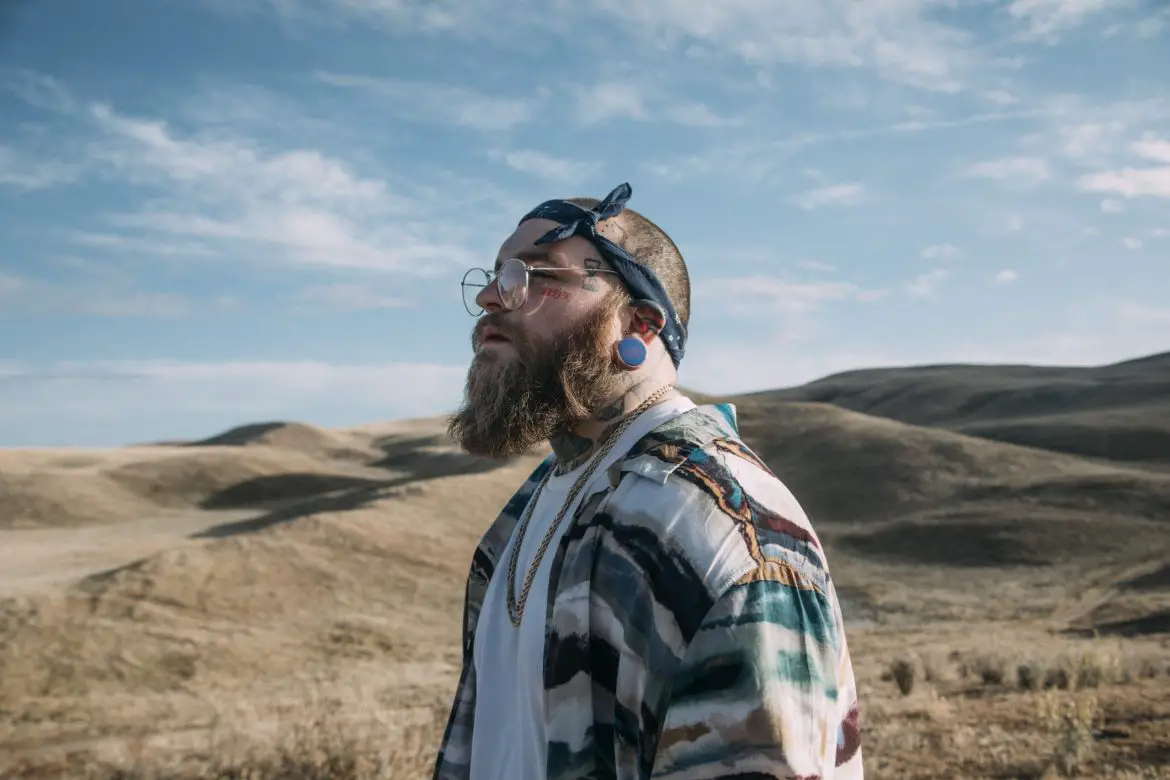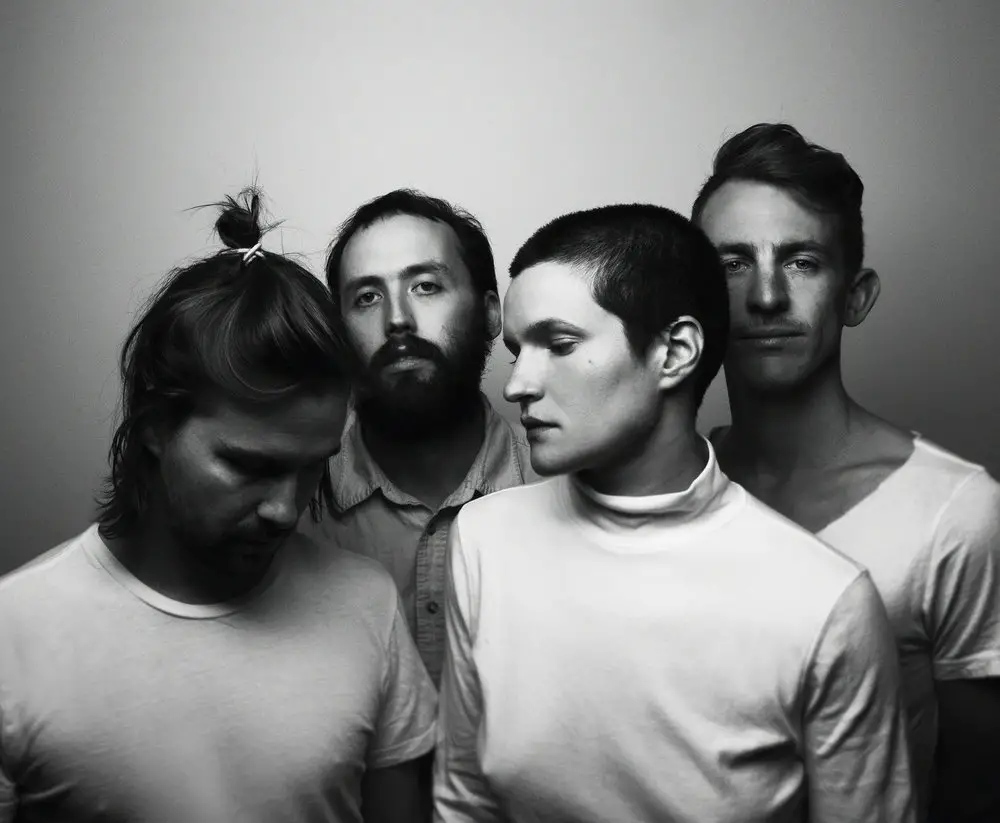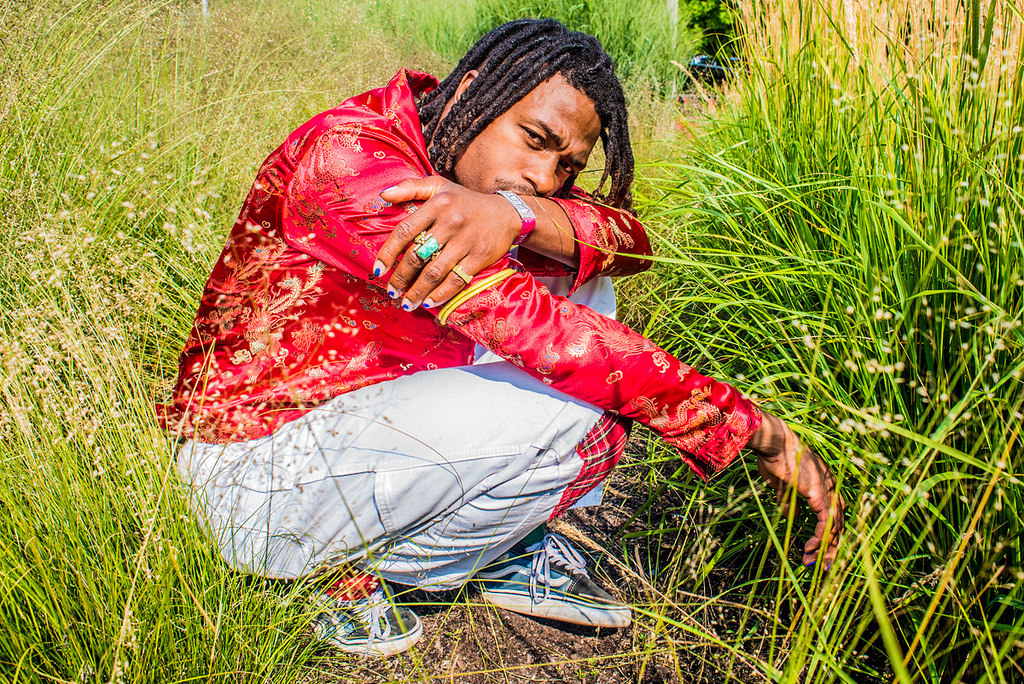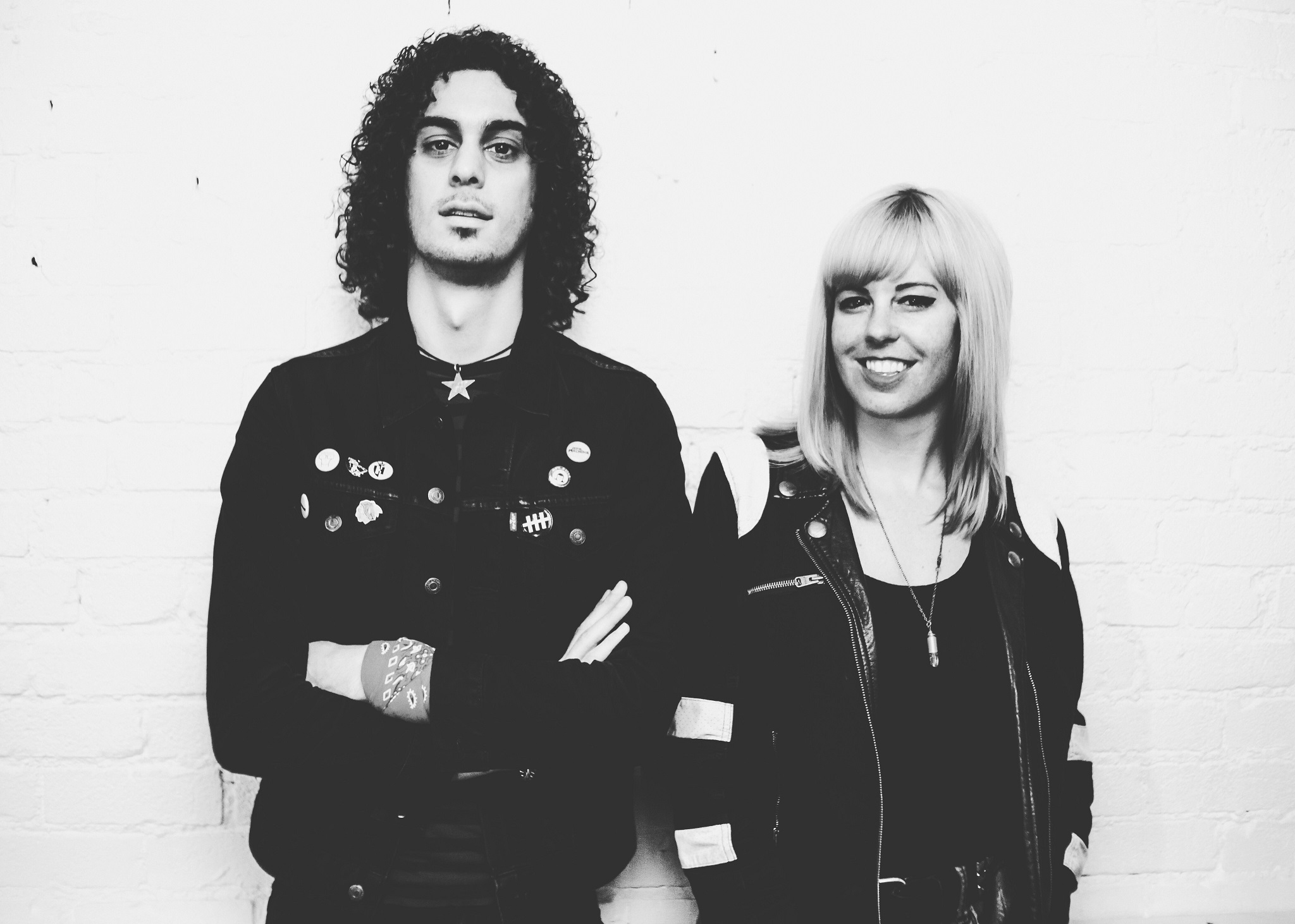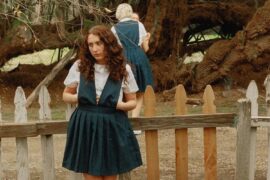Atlanta singer/songwriter Teddy Swims sits down with Atwood Magazine to discuss how his stellar debut EP ‘Unlearning’ became an exercise in self-worth and validation from the inside out.
Stream: ‘Unlearning’ – Teddy Swims
I’m just here to learn. I think that’s what our whole goal and purpose is. We learn so we can pass on what we know as a sort of legacy, and then we die and then who knows what happens after that. But while we got it, I’m here to fucking soak like a sponge, man.
In several ways, last year hit the reset button. Many of us went about our lives in a brain-dead rhythm for years, chasing a carrot at the end of a stick and never questioning why. When it all came crashing down, that carrot vanished. Our zombie walk slowed to a stop, leaving us with a single question:
Why?
Why were these the lives we chose to pursue? Were we even happy? Was this the right choice for us?
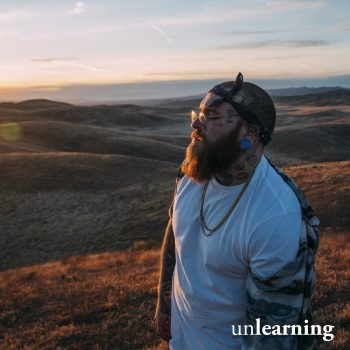
Just as 2020 became an exercise in staying alive, so too did it teach us what living even meant. Where we once learned without thinking, trying to keep the hamster wheel in motion lest we be left behind, we now had few companions except our own mind and the time to question all of it.
Unlearning was one of the biggest movements of 2020. We had to unlearn the ways in which our society failed us in the face of global catastrophe. We had to unlearn dominant ideologies of race and what justice looks like. We had to unlearn ourselves.
For Jayten Dimsdale, or as the Internet knows him – Teddy Swims, unlearning became a mantra in quarantine. “I had all this whole year for writing and writing and writing,” he explains. “And I’m thankful in lot of ways for the pandemic because it sat me on my ass and made me do a lot of introspection… I think everybody experienced that in some way. We’ve all had to really sit with ourselves and our own demons and get our own shit together.”
Teddy’s own battle to unlearn meant getting out of his own way. Though he boasts a YouTube channel with millions of views, which he amassed performing widely acclaimed covers, he still felt himself lacking.” I was more sure of myself and what I was doing in my music before anybody bought in, when I was just a guy in a bunch of bands nobody gave a shit about,” he admits. “Then all of a sudden Teddy Swims works and I’m in front of people’s screens. Maybe millions of people have screens now and I’m more terrified and more thoughtful and more scared and more unsure of myself and I’ve ever been.” That kind of pressure can often weigh down an artist, driving a wedge between artistic vision and one’s own self-confidence. But in the confines of quarantine, he met that head on.
Now as many of us venture into the world again, we can taste the fruits of those efforts. In Teddy’s debut EP, aptly titled Unlearning (out May 21, 2021 via Warner Records), we see a man unshackled from expectation and beginning to trust himself.
Listen inside for echoes, oh
Light is falling everywhere
Let it forever empower, ooh yeah
Let it forgive every care
Teddy cut his teeth on YouTube covers spanning the genre spectrum from George Strait to the Weeknd, and Mario to Amy Winehouse. That versatility carries over into Unlearning. “I guess I wanted my music to feel like the human experience,” he explains. “We all go to certain artists and certain people for certain feelings that we want. I might turn on Adele if I feel like I want to cry today. But I also might turn on Future to turn up and dance.” In that same way, he wanted his music to embody a wide range of experiences.
Instead of allowing himself to be pigeonholed as a ballad singer, a country artist, or a pop star, he bakes a little of everything into Unlearning’s brisk 22 minutes. “L.I.F.E.” swells with the wistful melancholy of Bieber at his best. “Blowing Smoke” revives blue-eyed soul with punchy modern production. And album highlight “Broke,” featuring country superstar Thomas Rhett, showcases his aplomb for larger-than-life dance hall blues.
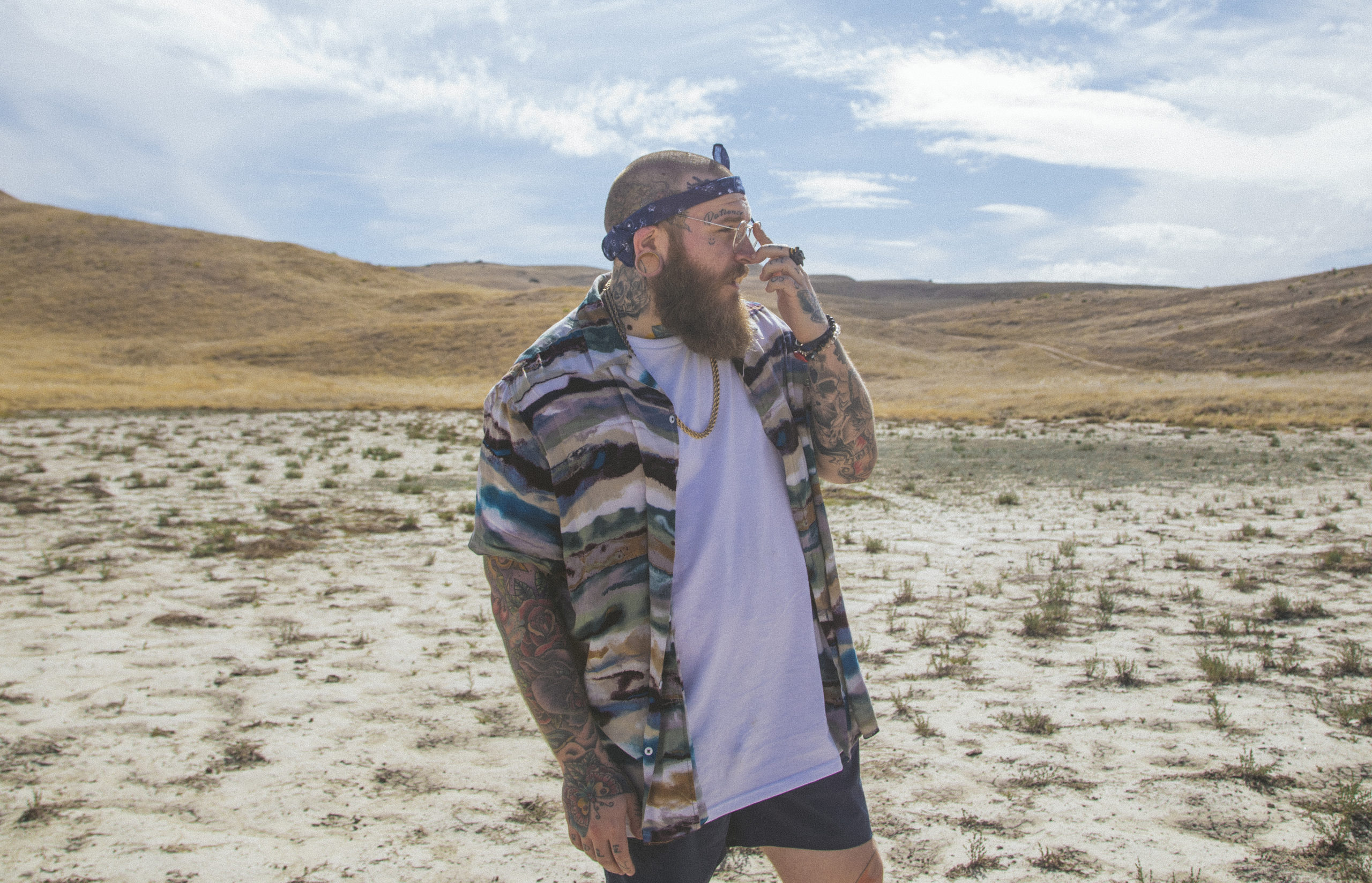
Remember days like just last week
There wasn’t nothin’ in the kitchen left to eat
Girl, what you want? (What you want?)
Go pick it out (Pick it out)
I came up in metal band, so I still want people to punch each other. I want people to cry. I want them to laugh. I want people to turn up. I want people to drink. I wanted to embody the human experience and explore what that means without ascribing to any particular labels.
In other hands, this eclecticism might come off as disjointed, but Unlearning ebbs and flows with the steady rhythm of a tide, easing the listener from one realm to the next. It’s a showcase for Teddy’s versatility and a forum for him to prove his talent in original pieces. If the question is: Who is this for? The answer is anyone and everyone looking to break free, to learn a new way of seeing themselves and the world around them. “I’m just here to learn,” he relates. “I think that’s what our whole goal and purpose is. We learn so we can pass on what we know as a sort of legacy, and then we die and then who knows what happens after that. But while we got it, I’m here to fucking soak like a sponge, man.”
As much as Unlearning is a vessel for Teddy to grow, it invites listeners to join him on the journey. Each passing note, every crescendo of his powerful voice, the album draws you in and suggests it’s time to learn something new. Teddy sat down with Atwood to elaborate on all the lessons he absorbed in creating Unlearning, what it’s like to touch the lives of people he’ll never meet, and how self-worth is success in itself.
— —
Stream: “Broke (feat. Thomas Rhett)” – Teddy Swims
A CONVERSATION WITH TEDDY SWIMS

Atwood Magazine: Your real name is Jayten Dimmesdale, yet you go by Teddy Swims. I'm wondering where that moniker came from.
Teddy Swims: Jayten is a bit of a difficult name for some people growing up. I would be waiting tables and bartending, and if I said my name was JT, they would be like, Jay? Jay-Z? I got Teddy when I was younger, and it really stuck. I was a bear, you know? Like, the little chunky kid running around the church. And Swims? I found it on a drug forum, believe it or not. “SWIM” stands for “someone who isn’t me.” It’s like asking for a friend. So I had originally started out by making Swims our whole collective unit that I had back here in Georgia, my whole team. I was just Teddy from Swims. And I guess it just kind of slapped itself together somehow and became what it is. To be honest, it’s still growing on me. Because people were like, “Teddy Swims is cool!” But at the same time, we all hate our voice. We all hate our name. We all hate everything about ourselves, you know?
It's just what sticks, right?
Teddy Swims: Yeah, it is what it is? I mean, I can’t change it now. That’d be catastrophic.
It's interesting, I actually found you via an Instagram ad last year promoting your song ''Picky.'' In a way, I think that's kind of indicative of how you came up via YouTube and word of mouth. How do you think that the algorithm plays its part in curating tastes? Because I don't know if I would have found you otherwise.
Teddy Swims: Me and my boys always say “the holy algorithm giveth and it taketh away.” That’s all there is to it, right? Sometimes you’re just so lucky. I had put a cover of Tim McGraw song on my TikTok on the 2nd of May, all these months ago. And the next thing, you know, Tim McGraw duets it last night. It just makes my entire TikTok pop off. And I’m like, how did he see something from back in May, when it’s now almost July? I don’t know how the algorithm works or what makes something pop off. It’s just a weird god of its own.
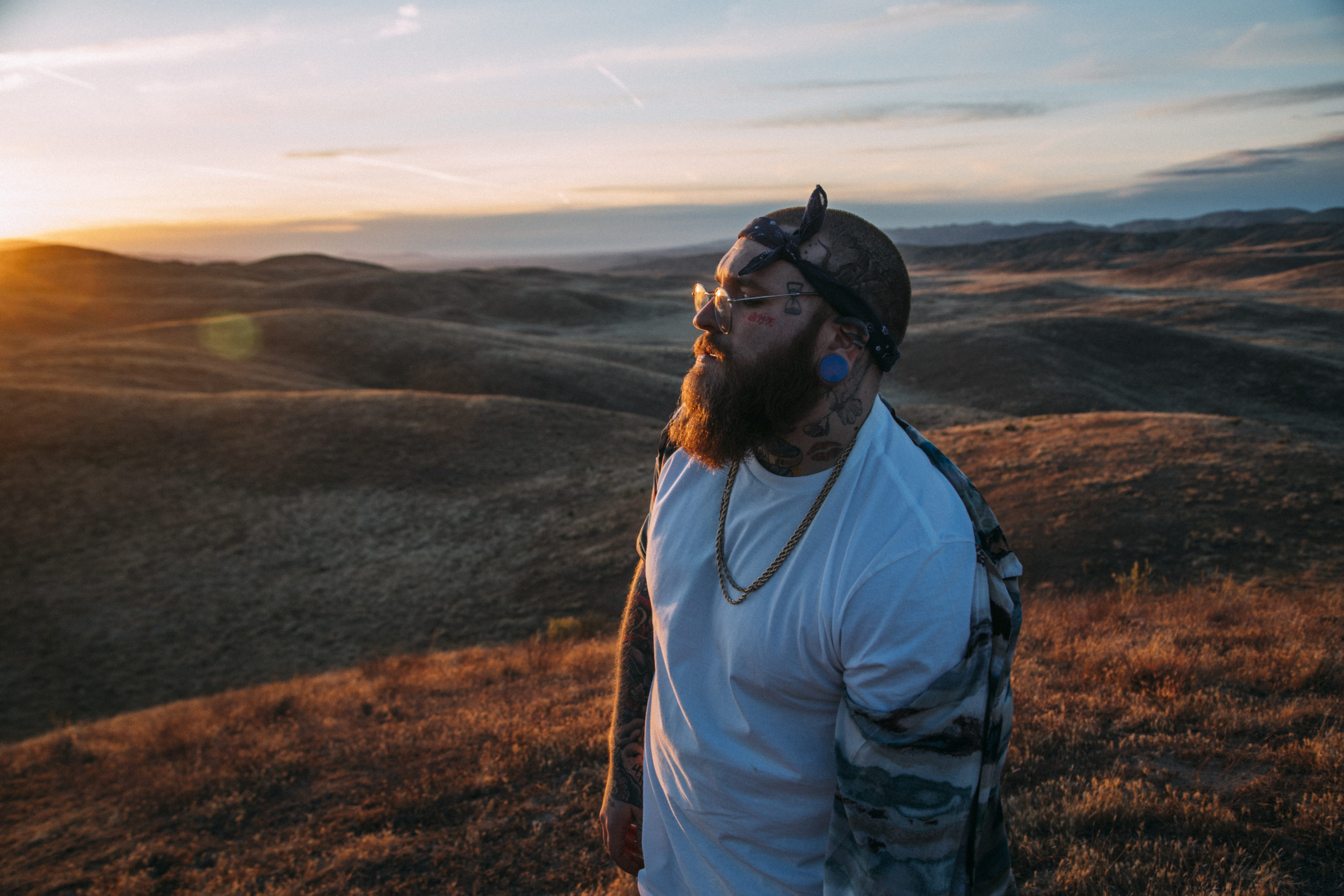
Absolutely. We're still trying to find out like how exactly it works. And I guess you kind of answered this question already, but how do you think that artists and personalities such as yourself can use the ''holy algorithm'' to their advantage?
Teddy Swims: Man, stay consistent. I think that’s the only thing that I’ve learned and what’s been good for me. Because eventually you’ll have one thing that works. That’s how it happened for us on YouTube when we first started doing covers. If we did one every Tuesday at 10:30am and we stayed consistent, eventually we’d start building something. Then when you get somebody stuck on one, they start going back further and further and further – all the way down the rabbit hole.
There’s no way to really make it. There’s no way of knowing what you’re doing. But if you just stay consistent, there’s room for everybody. Everyone can be an entertainer. There are people that are going to see you and love you for who you are what you are. There are going to be some people in this life that you meet, that you can touch and really change their lives and you’ll never really know who they are. It’s conversations like this that help me get closer to understanding those people that I can’t reach. At the end of the day all they want is some sort of fucking consistency, right?
I'm always excited when my favorite artists are posting every day and showing that kind of consistency. It brings you closer even if it's just parasocial. You've amassed a following of fans from many different backgrounds. What do you credit to the mass appeal of your music?
Teddy Swims: I grew up on a lot of different music. And I’m my own worst critic. Growing up, I knew that I may never be the best at anything. There’s always going to be some 11-year-old on YouTube that’s better than you at anything you’d ever want to be. And so I always tell myself, “Well, if I can just do what this person did half as good as them, maybe I could bridge a gap some way for somebody to be exposed to something that they wouldn’t otherwise be exposed to. “
I guess I wanted my music to feel like the human experience. We all go to certain artists and certain people for certain feelings that we want. I might turn on Adele if I feel like I want to cry today. But I also might turn on Future to turn up and dance. I’m getting pumped tonight. I feel like for me personally, that’s who I am as a human. And as an artist, I should be able to embody my experience instead of just somebody coming to me for one particular thing. I would hate for someone to be like, “Oh, that’s Teddy. He’s just a ballad singer. So when you go see him live, everybody dresses up and sits down and watches and claps quietly.” You know, I came up in metal band, so I still want people to punch each other. I want people to cry. I want them to laugh. I want people to turn up. I want people to drink. I wanted to embody the human experience and explore what that means without ascribing to any particular labels.
How did your upbringing in Conyers, Georgia influence your own music and your taste?
Teddy Swims: Man, it was a little bit of everything. My mom’s dad was a Pentecostal pastor, so I was raised on a lot of Southern gospel music and quartets that would come through the church. Then we would go see my dad on the weekend and he’d let us listen to whatever we wanted and eat junk food and whatever. So the weekend was my safe haven at my dad’s house because he would turn us all into everything that mom didn’t approve of. Boys 2 Men, Keith Sweat, you know? All these all these amazing artists that I didn’t even know being with my mom.
Let's switch focus a little bit and talk about the album. Unlearning. I think that there's so much we can talk about here. I want to start with the opening track ''L.I.F.E.'' I love what you did there, using the acronym to create this entire story using just those letters. What was your intention in helping compose the song this way?
Teddy Swims: Actually that’s the one song on this record that I didn’t write at all, man. Being an artist, I always get a lot of pitches from people who are like, “Hey, you should sing this song.” It’s always hard for me because I’m quite jaded. I like my songs. I’m an artist, you know what I mean? But I’ll never forget my buddy Julian Bunetta, who co-wrote a lot of my songs like “Broke” and “Blowin’ Smoke.” He showed me “L.I.F.E.” about a year or something ago. I’ll never forget when I heard it — what it did to me, the way it made me feel. Every word was a poem. I immediately knew that not only was this my song, but I promised them nobody was going to sing this song like I wanted to. I felt was just so authentic to me that I had to had to add it.
Listening to it, I think that your interpretation really gives it life, no pun intended. I was thinking about how in telling this story that you're kind of learning just by living. Do you think that just the act of living can be its own teacher?
Teddy Swims: Absolutely. I think that’s what we’re all here to do, ultimately. Again, there are going to be some people that you can touch but I’ll never be able to. And it’s up to me to see what I can gain and what I can learn from you to totally make me a better a better student, but also a better teacher. I’m just here to learn. I think that’s what our whole goal and purpose is. We learn so we can pass on what we know as a sort of legacy, and then we die and then who knows what happens after that. But while we got it, I’m here to fucking soak like a sponge, man.
You talked a little about how Unlearning is an exercise in getting out of your own way and learning not to be your own worst critic. In an interview I recently conducted, the concept of disciplined self-indulgence came up. It’s one of those Oblique Strategies cards that Brian Eno used to help artists find their voice in the studio. It's kind of like an avenue to trusting one's own artistic vision and creativity. Is learning to trust your yourself something that you think is important in your own work?
Teddy Swims: Oh, absolutely. I hang out with Diamond Dallas Page a lot. I don’t know if you’re wrestling at all, but he’s helped me a lot over this pandemic. Man, he’s a childhood hero of mine. I’m actually down almost 50 pounds right now over the last four or five months, because he’s been helping me get in shape, take care of myself, and take myself seriously. One thing DDP has taught me that delaying gratification right now leads to better rewards in the future. Don’t have that hamburger right now, fat boy. Maybe you wait till Sunday for a cheat day and you’re five pounds down this week. Also this pandemic has been kind of weird, because I was more sure of myself and what I was doing in my music before anybody bought in, when I was just a guy in a bunch of bands nobody gave a shit about. Then all of a sudden Teddy Swims works and I’m in front of people’s screens. Maybe millions of people have screens now and I’m more terrified and more thoughtful and more scared and more unsure of myself and I’ve ever been. And I think the hardest thing in the world is that the more people that really care and buy into you, the less it feels like you own yourself or you’re sure of yourself.
I guess in a way that blood on your hands, right? If you can lead somebody and people listen to what you say, what is it you’re saying? What you’re doing and the person you are for them becomes so much more important. They all get a sense of ownership of you, which is what we want as artists. We want somebody to feel like “I was listening to Teddy for two years, my Teddy.” And when they see me, they feel like they’ve know me their whole life, even though we’ve never met. I want that. But that also means sometimes you feel like you’re not your own or you’re stretching yourself so thin. After a while you feel less and less sure of yourself. And it’s hard because I had told myself that in this career we live, and the money is made, based off of the validation other people will give us. That is a scary slippery slope. Because it’s not just your own self-worth coming from people’s validation, but your livelihood. And it gets worse if you don’t see that validation immediately. Let’s say you get a million views on one video, in the next week, you get 50,000 views on the next one. Now you’re sad because you got 50,000 views. And it’s like, How could I be sad about that? How could I be like, “Oh, what a flop. You’re a washed-up loser Ted.” It’s like I should just be so happy. I remember getting 500 views in my first video and thinking “Holy shit, 500 people have seen this!” And now if I see 10 million, that’s great, but 200,000 wouldn’t fly. You start seeing these numbers, and they represent more of an invalidation of your self-worth, than recognizing that these are people’s lives that you’re changing. We forget that these numbers are people. It’s so difficult to just know that your-self worth has to be first. It can’t be based off of career validation, even though that’s your moneymaker. So how do you separate your self-worth from your career? It’s hard as hell to do, especially in our fake social media culture. So slippery.
It’s so difficult to just know that your-self worth has to be first. It can’t be based off of career validation, even though that’s your moneymaker.
You've also said that Unlearning perfectly encapsulates 2020. Can you elaborate a little bit?
Teddy Swims: I had all this whole year for writing and writing and writing. And I’m thankful in lot of ways for the pandemic because it sat me on my ass and made me do a lot of introspection. I think everybody experienced that in some way. We’ve all had to really sit with ourselves and our own demons and get our own shit together. And I think, especially with the social climate through the pandemic – the Black Lives Matter movement and everything – it’s caused a lot of people to unlearn a lot of things, whether it be about the way that they view themselves or the way that they were raised. Maybe they realize it’s probably not the right way of thinking or the right way of living. Unlearning has been about that journey.
Even in my own life, I had to forgive myself for where I thought I would be right now, what I had thought I’d accomplish by 28. I had to unlearn those expectations and learn a bit of self-kindness among so many other things. I think 2020 was just a year of learning for all of us.
And now that we're coming out the other side of quarantine, how do you think this EP speaks to the new world that we're entering?
Teddy Swims: I guess we’ll see. I’m excited to be in front of people again and really have some human connection and flavor in my songs for the first time. So I have I have no clue. I can definitely say that fear of just seeing numbers and not people all of last year, it was terrible. I’m actually going to be able to see faces and human connection and not just comments. My headspace in my heart are already feeling 10 times better. Everything is just feeling so much more alive.
Yeah, you have a lot going on in 2021. Can you just briefly tell me about what you have coming up?
Teddy Swims: I’m putting out a song in July or August or something. And I have another with my good buddy Karl Michael that should be dropping soon. I’m so excited about it. He’s like my soulmate, like my best buddy in the world. We’re also doing a Zac Bown tour, opening up for him on the first 9 dates and his tour in August. And I’m honestly so excited about it. We were playing a 300 to 700 people a year and a half ago now we’re playing Fenway Park to like 35,000, which is horrifying in so many regards. Hopefully this year we’ll be able to put out another little EP just like Unlearning, but I don’t have anything set in stone yet because it’s still a little bit of pandemic out here. And maybe a little Christmas something too.
I have one last question. If you were to imagine your music as a drink, what would it be?
Teddy Swims: It’s not quite an Old Fashioned because they’re a little sweet for me. What I’ve been really loving is a nice bourbon on the rocks with bitters. None of the simple syrups, the sugar, or the cherry. Just the bourbon and ice with a little bitters on it. Just a nasty, bitter drink with more bitter nastiness.
— —
Stream: “Bed on Fire” – Teddy Swims
— — — —

Connect to Teddy Swims on
Facebook, Twitter, Instagram
Discover new music on Atwood Magazine
? © Gus Black
:: Stream Teddy Swims ::

